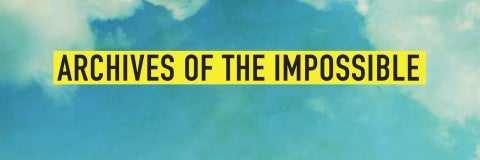
Wesley Andres Watters
Wesley Andres Watters is an associate professor in the Department of Physics and Astronomy at Wellesley College, where he holds the Whitehead Chair of Critical Thought. For most of his career, he has focused on the effects of high-speed impacts on planetary surfaces and interiors, and the long-term evolution of impact craters. Through his research and teaching on these topics, he has become acquainted with the early history of this field. In recent years, this has sparked a broader interest in the role that anomalies play in the history of science, and especially of exogenous anomalies that scientists seem to find initially unpalatable. Since 2020, he has worked with his students on developing methods and instrumentation for detecting and characterizing objects in the atmosphere, in search of novel classes of phenomena. He has been an active member of the Galileo Project Research Team since 2021.
Formerly Impossible Objects: Falling stones and the Dawn of Meteoritics
In early modern Europe, natural philosophers widely denied the reality of meteorite falls, a situation commonly compared to present-day denials of the UFO phenomenon. A close examination of the prehistory of meteoritics (the science of meteorites) reveals significant parallels as well as notable differences. Meteorite falls belong to a special class of anomalous phenomena that are fleeting and not reproducible on demand, and that were largely brought to the attention of the scientific community by non-scientists. We will examine how eyewitness testimony about marvelous events was regarded by scholars of the early modern period, and how some in this community responded to these reports with steps that led, eventually, to the founding of a new science. We will also consider the challenge of distilling the phenomenon from the metaphysical baggage that had become attached to it. Taboo and stigma had a part in discouraging investigation, alongside preexisting beliefs that were entrenched to varying degrees. Of special interest is the question of what events, hypotheses, publications, and interventions were necessary to change scholarly opinion. We will also consider whether existing frameworks for understanding scientific anomalies are helpful to making sense of this case.

